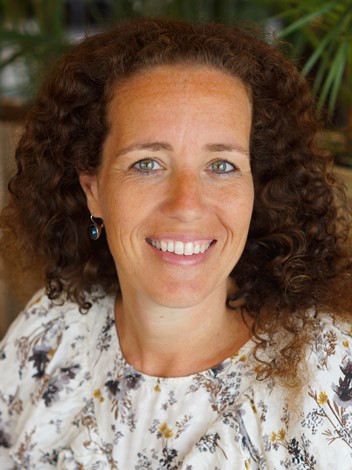Why lead virtual meetings?
Managed well, virtual meetings can be both effective and highly economical. You can meet and work at any time with colleagues wherever they are located, saving travel, time and accommodation costs.
However, whether you use simple or sophisticated technology, and communicate ‘remotely’ often or very little – the chances are that running virtual meetings is not something you enjoy.
The Nomadic Leading Virtual Meetings programme.
Last week we finished our four-week Programme of Leading Virtual Meetings.
It’s a training programme where we work with participants in four, 2-hour sessions – on how to lead virtual meetings and make them both productive and enjoyable.
The feedback we get from those that participate is that, on top of the practical content we share, participants learn effective tips on how to immediately apply what they learn in the training.
There is nothing better than “practising what you preach”.
So, after seeing how it’s done, reflecting on why it works and experiencing themselves the impact of what an effective, well-run virtual meeting has to offer – participants are happy then to jump in and start leading their own virtual meetings.
Over the four sessions, in addition to learning best practice techniques, they also have a lot of fun. And we all know from experience that in a fun and enjoyable environment, the participants are more open to learn and take on-board the lessons.
Leading Virtual Meetings – an overview.
In week one’s training session, those participants that have already had some experience with leading or participating in virtual meetings come looking to build confidence on what they were already doing.
Participants are often surprised that there are so many more ways to utilise the virtual environment and methods to apply their virtual learning.
In the second training session, participants start practising leading a virtual conversation in small groups. They need to understand what method or approach works for a particular audience and why.
For sessions three and four, the participants get ready to practice and engage with the whole group. They walk away from the sessions with constructive feedback from fellow participants, as well as clear direction from the Nomadic team on how to build confidence and skills for the virtual world.
Programme structure.
Throughout the Programme, we look in depth at what a virtual environment offers, and how to use that environment depending on the needs of the audience.
For example, once participants are acquainted with the tools, we ask them to write their answer to a question on the screen, a whiteboard. This way, the whole group is active, involved and engaged with the question at hand.
Virtual technology is discussed, how to manage and produce virtual sessions and what to do when technology has setbacks (because they will happen!) and why it’s important to consider the pros and cons of a particular technology choice depending on how it will be used.
Virtual closeness.
We discuss, what we call, “virtual closeness”. What is it and how it plays an essential role in all great meetings. There is a lot of effort around establishing trust and building engagement through virtual exercises.
Participants often comment on how effective the ‘virtual café’ is, and walk away from the programme determined to use it in their own sessions.
Virtual café
The ‘virtual café’ refers to the ten minutes prior to a session starting, where we facilitate an informal conversation to “break the ice”.
Typically, we select a different topic each session to set the atmosphere, engage participants that log in early and to make sure everyone has good audio. The topic is not content related, but is there to start building the relationships by allowing participants to get to know each other.
The thing that I personally love the most about this Programme is that we start in session one with 10 strangers and you feel the trust and virtual closeness grow throughout the sessions.
By session four, we have a close team who all look forward to joining the session, who feel comfortable speaking up, making jokes and working hard together. Over their time in the programme they have bonded with colleagues from within the company, and from very different parts of the world and got to know each other better, all without ever having met in person.
The experience of this convinces the participants of the value of being able to lead pleasant, engaging and productive virtual meetings.
And of course, more importantly, they walk away with the knowledge of how to lead a virtual meeting themselves.
Virtual meetings don’t have to come second to face-to-face meetings if you do them well.
Benefits of the Leading Virtual Meetings programme.
Upon completion of the programme, you’ll be able to:
- Chair virtual meetings with skill and confidence
- Choose and use the most appropriate technology
- Manage group dynamics
- Cope with virtual ‘etiquette’
- Create an engaging, friendly and highly productive meeting environment.
To learn more about the Leading Virtual Meetings programme – click here.
And if you want to know more about how the virtual environment feels we have a session on December 19th, “Getting to Know the Online Classroom” from 10.00 -11.00 CET.
It’s an interactive demo of the Online Classroom in one hour! An open enrollment session is free of charge and will teach you the basics of learning online. This session is hands-on, interactive, engaging and fun.
With the countdown to Christmas, this online session will be all about showing how virtual can be fun! Full of Christmas spirit – including games – all the ingredients of an enjoyable “virtual party”.
Click here to learn more and book a place.
Image source: www.freepik.com

Lies is an organizational psychologist with a focus on positive psychology. She has worked as a commercial manager for many years in an international environment before she took a deep dive into psychology. Now she combines her experience having worked as a manager herself and her knowledge of positive psychology research to help organizations grow and flourish. Lies is a specialist in the virtual classroom and is a highly experienced online producer, designer and facilitator. Click on the LinkedIn icon for a more detailed biography.



